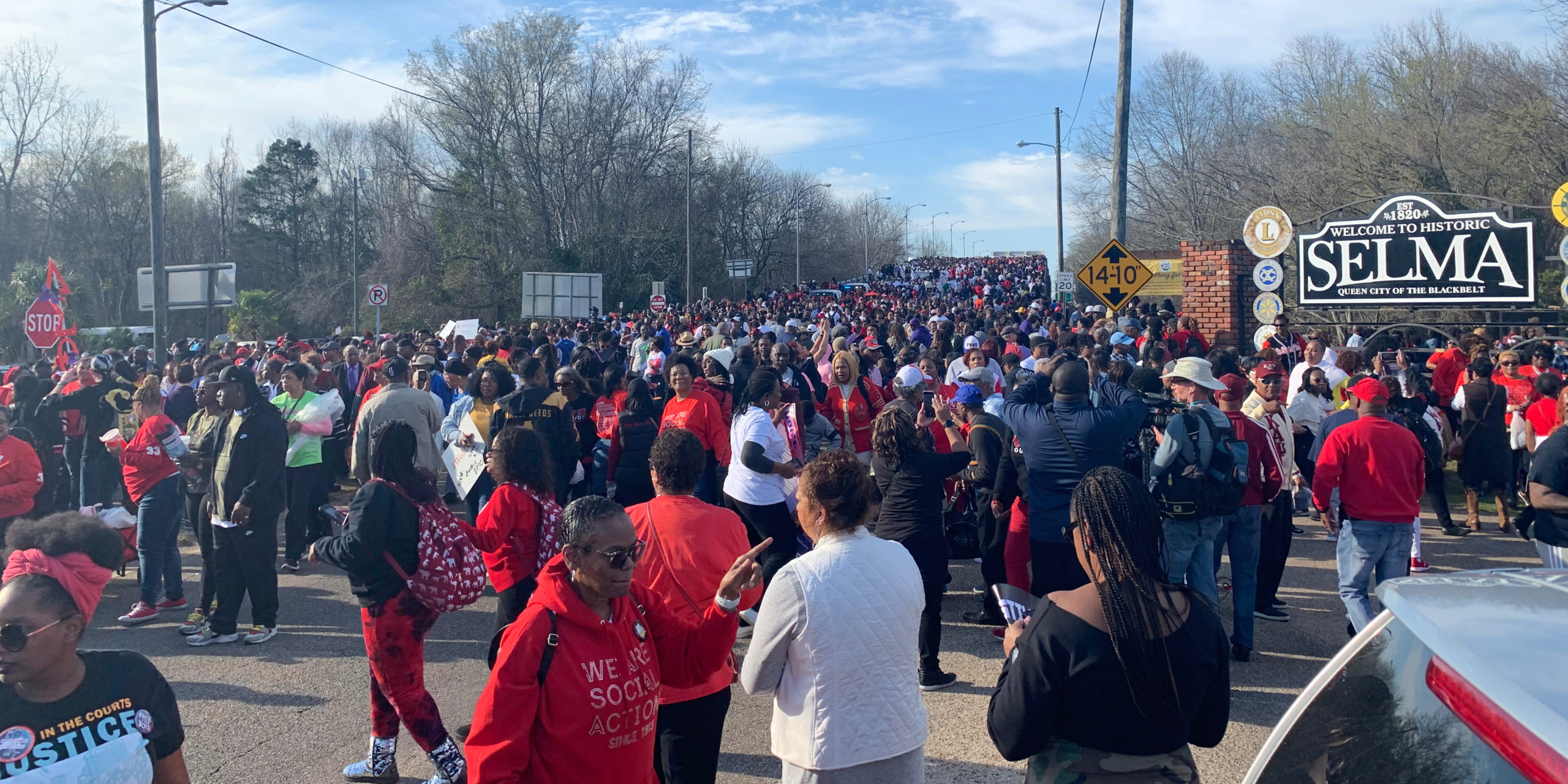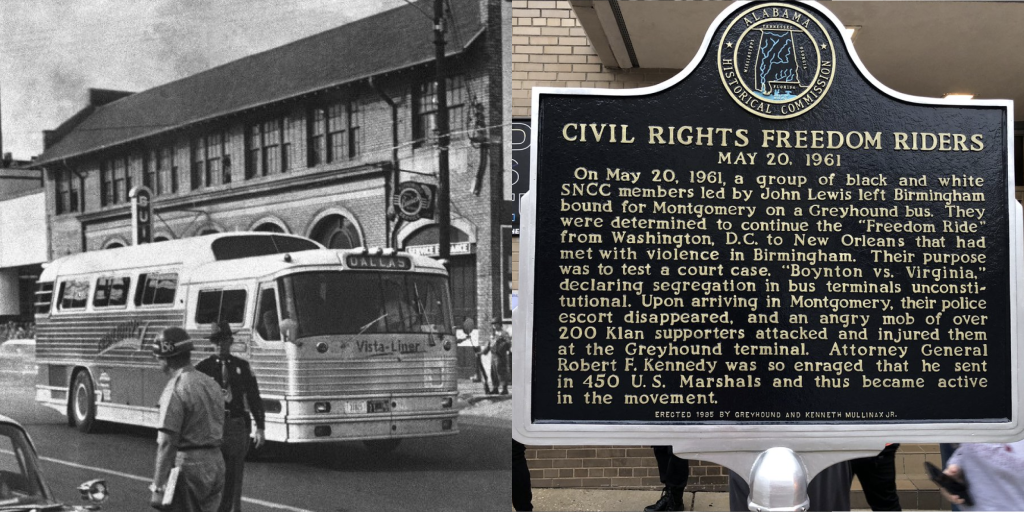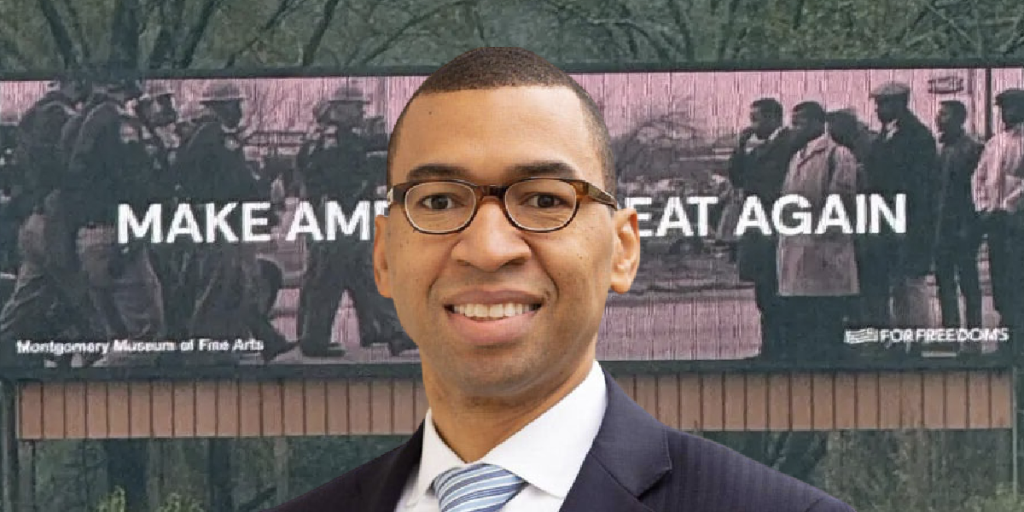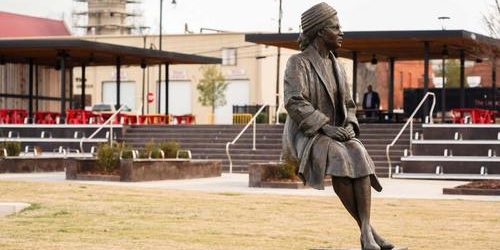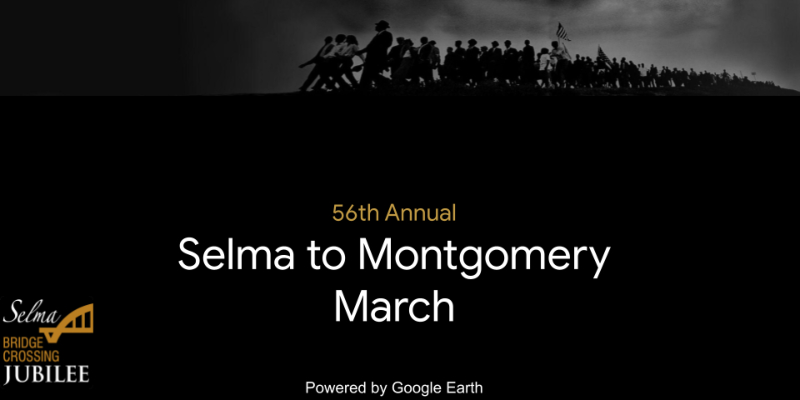SELMA — Several thousand people descended on Selma, Alabama, on Sunday, including all but one of the major Democratic contenders for the 2020 presidential election.
Fifty-five years earlier, a group of peaceful protesters marching in support of civil rights for black Americans were beaten by a group of white policemen and recently deputized white townspeople as the protesters tried to cross the Edmund Pettus Bridge.
The reactions elicited by the images broadcast to the nation and world that day, of peaceful young men and women beaten bloody and unconscious by an all-white police force, are widely credited with being a major milestone for the 1960s civil rights movement.
Alabamians head to the polls Tuesday to cast their primary ballots on who should represent the party of their choice in the general election this November.
On the Democratic side, Alabamians will be deciding which presidential candidates will receive a portion of the state’s 55 delegates at the Democratic National Convention this summer.
The candidates in Selma on Sunday were hoping to convince voters they were worthy of some of those delegates. The nature of the event drew hundreds of members from the national media, making Selma a campaign stop that impacted not just Alabama but the entirety of the Super Tuesday election contest.
Organizers have termed the annual remembrance as the “Selma Bridge Crossing Jubilee,” and in years past, it has welcomed prominent officials such as former Secretary of State Hillary Clinton in 2019 and then-President Barack Obama for the 50th anniversary of the march in 2015.
The 2020 version welcomed every competitive candidate for the Democratic nomination except Sen. Bernie Sanders (I-VT). Sanders attended the event in 2019. Notably, the Selma Jubilee was the last public event for former South Bend, Indiana Mayor Pete Buttigieg, who dropped out of the presidential race only a few hours after the conclusion of the march.
That left former Vice President Joe Biden, Senator Elizabeth Warren (D-MA), Senator Amy Klobuchar (D-MN) and former New York Mayor Mike Bloomberg as the contenders in Selma on Sunday.

Service at Brown Chapel AME
One of the day’s main festivities was an event at the historic Brown Chapel AME Church in Selma that was the starting point for the famous Selma to Montgomery marches. The service veered between politics, remembrance of the march and gospel; one speaker noted that the three were forever intertwined.
At one point, the conductors of the service asked those who had marched that fateful day in 1965 to stand while the names of all those there that day were read aloud.
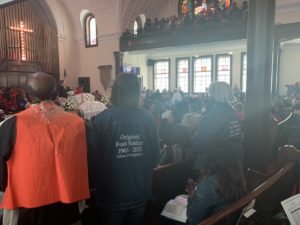
“Foot soldiers, this is about you, and keeping your legacy alive,” commented Democratic U.S. Rep. Terri Sewell (AL-07).
The Brown Chapel service featured remarks from many, including Bloomberg, Biden, Sewell and U.S. Senator Doug Jones (D-AL).
Bloomberg was poorly received in the room.
In several national polls, Bloomberg has been gaining ground in Super Tuesday states after unprecedented spending by the billionaire on every kind of available advertising.
Biden came to Alabama riding a largely positive wave of media coverage. The 77-year-old scored a big victory in South Carolina on Saturday, a state whose Democratic primary electorate is demographically very similar to Alabama’s.
Though Biden has momentum from his South Carolina victory, many political observers note his campaign has still not gotten the reception from the public or at the ballot box that is customary for someone styling themselves as the frontrunner.
In recent weeks, it has been the absent-from-Selma Sanders who used victories in New Hampshire and Nevada to move into frontrunner status for the Democratic nomination.
Biden has previously received the endorsement from and was given a passionate introduction on Sunday by Sewell.
Sewell was greeted with excitement by the crowd.
Speaking now is @RepTerriSewell. Selma is her hometown and Brown Chapel AME is her home church. pic.twitter.com/2vW8DSuGMO
— Henry Thornton (@HenryThornton95) March 1, 2020
Sewell is the daughter of the first black woman ever elected to the Selma City Council. She was the first black valedictorian of Selma High School, before going on to receive degrees from Princeton, Oxford and a law degree from Harvard.
While at Harvard, Sewell befriended the man who would go on to be America’s first black president: Barack Obama. He was her close ally after, in 2010, she became the first black woman Alabama ever elected to Congress.
Sewell spoke on Sunday from the pulpit at Brown Chapel AME, the church where she grew up attending.
She remarked, “Those of us who are blessed to be in positions of power must know that we didn’t get to those positions of power just because we have the right degrees. We got to that position of power because others sacrificed. This is ground zero of that sacrifice.”
At the end of her speech, she lent her credibility and political capital to a former Vice President of the United States, who acknowledged needing her help.
“He has earned the right to be in this pulpit,” Sewell proclaimed before bringing Biden up in front of a crowd that had risen to its feet.
Jones, in comparison to Sewell, received a relatively tepid response from the crowd when he was introduced and approached the pulpit.
Senator @DougJones has begun his remarks. pic.twitter.com/rSGY5FMaCv
— Henry Thornton (@HenryThornton95) March 1, 2020
Jones has drawn fire in the last year from members of the Alabama Democratic Conference, a group that identifies as the “black caucus” inside the Democratic Party of Alabama.
The senator from Mountain Brook appeared to gain appreciation from the crowd as his speech went on.
“Courage and Selma are synonymous … courage and Selma are hand in hand. You can’t speak of one without the other,” he told the audience.
Jones obliquely criticized his GOP rivals currently competing for the nomination to take him on in November.
After praising the strength displayed by those that overcame racist treatment in Selma in the 1960s, Jones said in what seemed to be an attempt to tie the rhetoric of his opponents to the legacy of the Jim Crow South, “You can still see it in today’s political world … you see people that talk about us versus them. Which one of those do you think you are?”
“Those folks that keep talking about ‘they’re not one of us, you’re not one of us.’ Folks, you know those dog-whistle politics,” he warned the audience.
Jones received what was perhaps his biggest response from those assembled when he brought up increasing access to higher education for Alabama’s impoverished communities.
“One of the things I’m proudest of is sponsoring the bill that got permanent funding for HBCUs,” he said to loud applause.
Later former VP Biden and the event’s official honoree, Stacy Abrams, received warm receptions for their time in the pulpit.
Abrams is the former minority leader in the Georgia House of Representatives who earned plaudits from Democrats across America for the unsuccessful campaign she ran to be Governor of Georgia in 2018.
Both Biden and Abrams gave significant time in their remarks to what they see as voter oppression tactics employed by GOP elected officials at the state level.
The march
After the service at Brown Chapel, the audience joined the thousands of people outside for a reenactment of the march from the church to the other side of the Edmund Pettus Bridge.
Huge crowd outside Brown Chapel AME in Selma as the service ends. pic.twitter.com/44VbBZjlYi
— Henry Thornton (@HenryThornton95) March 1, 2020
There was an enormous crush of citizens and media surrounding the presidential candidates.
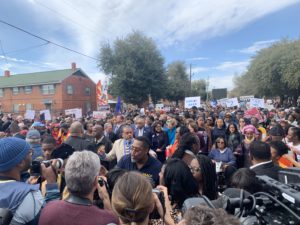
The candidates, except for Biden who left after the Brown Chapel service, all made the over one-mile walk.
One of the leaders of the original march on Bloody Sunday in 1965 was a promising young student organizer named John Lewis.
Now, U.S. Representative John Lewis (D-GA), who has been a member of the House since 1987, made a surprise appearance at the Selma Jubilee on Sunday.
Lewis, 80, recently revealed to the public that he has been diagnosed with cancer. Some on both sides of the aisle call him the “conscience of Congress.”
Lewis was ferried by car to the middle of the bridge where he had been beaten in the head to the point of concussion 55 years earlier.
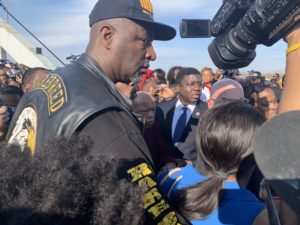
He told an adoring crowd that “55 years ago a few of God’s children attempted to march from Brown Chapel AME church across this bridge.”
He continued, “We were beaten. We were tear-gassed. I thought I was going to die on this bridge. But somehow and someway God almighty helped me.”
After the march concluded, and the presidential candidates were whisked away by waiting drivers, Yellowhammer News approached two young men who participated on Sunday.
Tevante Harris and Troy Brown are both drum majors at Talladega College. They are also both members of the Alpha Phi Alpha fraternity, the first greek letter organization in America created for and by black men.
Brown told Yellowhammer he had been feeling the weight of history throughout the day.
“A lot of lives were lost for certain rights we have today,” he remarked.
Harris told Yellowhammer, “For me, to actually be on the bridge that he actually walked across with people. It actually means a lot. This bridge is a part of history.”
Henry Thornton is a staff writer for Yellowhammer News. You can contact him by email: [email protected] or on Twitter @HenryThornton95.




